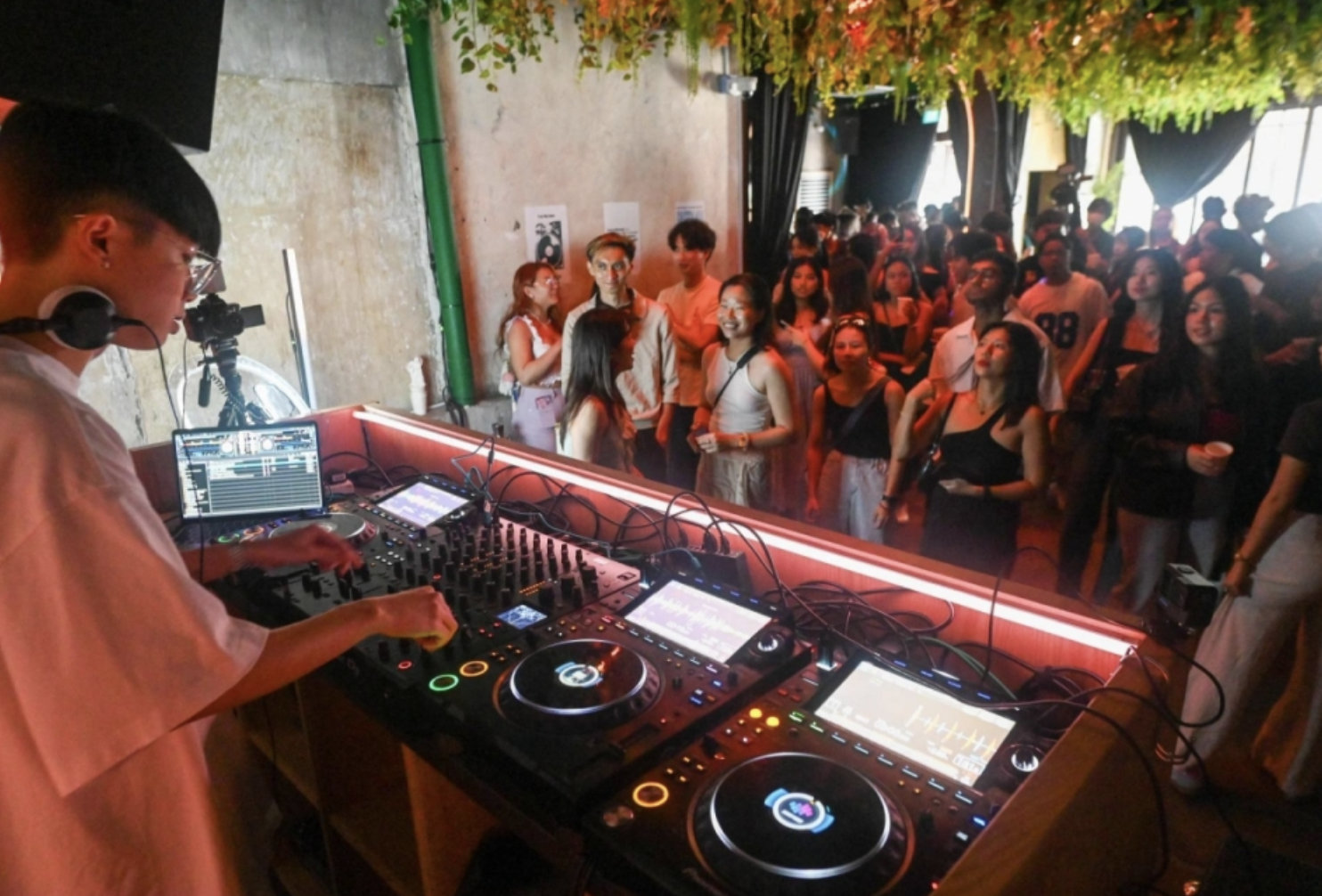In the middle of the day, dozens of young people gather in Singapore's Duxton district, dancing under disco lights with coffee concoctions in hand instead of alcoholic beverages. They head home before sunset to catch the train.
Among them is 20-year-old Ashley Chean. She hasn't consumed alcohol in a year, a stark contrast to her habits while studying abroad in France. "More and more of my friends are like me," she says, joining the daytime party and abstaining from alcohol.
Aden Low, the 21-year-old founder of Beans and Beats, a non-alcoholic events company in Singapore, says the 15 USD entry fee is significantly lower than the over 100 USD cost of a typical night at a club, not including food and taxi fares. This allows guests to enjoy themselves while remaining sober and easily catching the train home.
"Many people think only alcohol can create a sense of connection, but coffee can too," says Low. "We just want to bring a fun, positive atmosphere, and early nights. That's the Gen Z experience."
Accordingly, Beans and Beats turns off the music at 7 p.m. This alcohol-free ethos caters to Singapore's Gen Z, a demographic increasingly prioritizing health and shunning late nights.
24-year-old Praneet Seenivasaragavan, who has largely abandoned the nightlife scene, says alcohol is no longer a prerequisite for fun. "Going to bars or clubs can be addictive. Nightlife disrupts your routine, and it takes a few days to recover," he explains.
Beyond cost savings, alcohol-free parties align with the "sober curious" movement gaining traction among young people globally. A 2024 World Health Organization (WHO) report indicates that alcohol consumption among young people has decreased compared to previous generations due to a greater focus on physical and mental well-being.
This alcohol-free trend is spreading throughout Asia. In Bangkok, numerous bars host alcohol-free nights featuring mocktails and DJs. Tokyo, Kyoto, and Osaka, Japan are also seeing a rise in alcohol-free bars.
Young people in China are embracing innovative drinks like pork-flavored lattes and oolong teapuccinos, or opting for matcha parties and cycling instead of bar-hopping.
The movement gained momentum after Covid-19, when thousands of bars and clubs closed, leading to a shift in consumer habits. Amid economic uncertainty and rising prices, young people are choosing budget-friendly experiences that don't revolve around alcohol.
This is particularly true in Singapore, where the high cost of living is forcing Gen Z to tighten their belts.
 |
A DJ performs for coffee-drinking patrons at a non-alcoholic event in Singapore. Photo: Japan Times |
A DJ performs for coffee-drinking patrons at a non-alcoholic event in Singapore. Photo: Japan Times
"They are cutting back on expensive restaurants, alcohol, and alcoholic beverages to save money for travel or dining elsewhere," observes Chua Hak Bin, co-head of Regional Macro Research at Maybank Singapore.
Singapore's traditional F&B industry is feeling the pressure from this trend. Over 3,000 restaurants, bars, and eateries closed in 2024, the highest number since 2005, while casual dining and fast-food chains are gaining popularity.
The Singapore Nightlife Business Association reported that revenue for pubs, clubs, and karaoke establishments in 2022 reached only 284.7 million USD, a significant drop from 674.7 million USD in 2015.
Dennis Foo, founding president of the Singapore Nightlife Business Association, believes reviving the nightlife scene will be challenging.
"Rising rents, labor shortages, and increasing beverage costs continue to hinder the industry," he notes.
However, Foo remains somewhat optimistic. Alcohol is still central to most party experiences, and alcohol-free parties remain a niche market.
"But if this trend explodes, the face of traditional nightlife could change," he says.
Ngoc Ngan (The Star, Japan Times)












